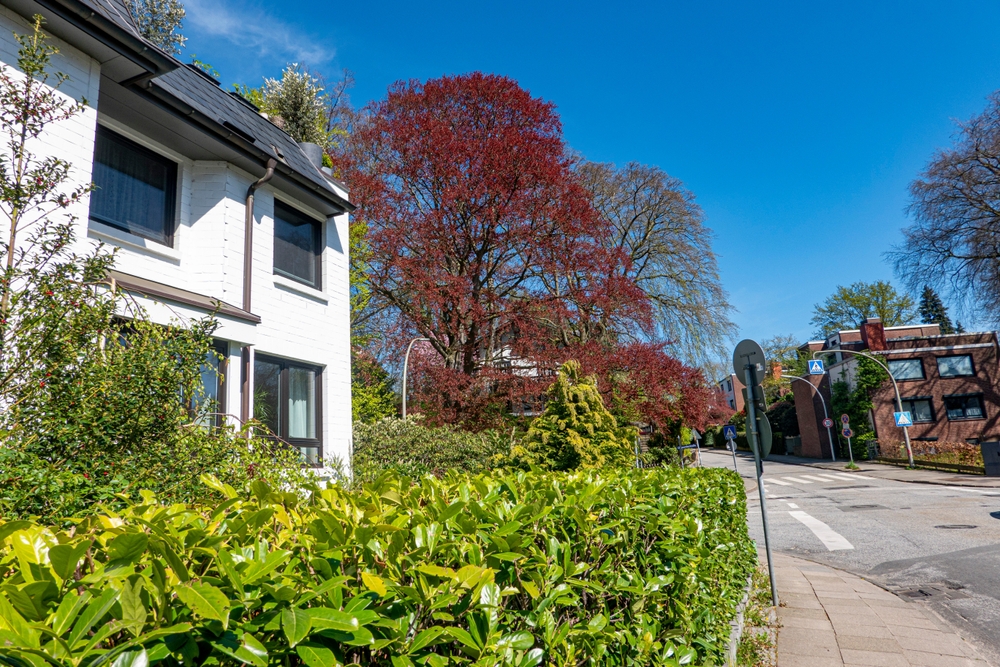A pensioner from Hamburg has shared her troubling experiences in what was once a peaceful neighborhood, now facing significant challenges due to the arrival of a large Syrian refugee family.
The pensioner, who lives in an affluent area of the German port city, described how her home has transformed from a “Bullerbü” (a reference to Astrid Lindgren’s idyllic children’s book series) into a source of constant stress and frustration.
The family of 10 occupies a three-room, state-subsidized apartment, where, according to the pensioner, only one child knows any German. This lack of communication has intensified the cultural divide between the new arrivals and long-standing residents, who once enjoyed a tranquil living environment.
Her experiences were highlighted in letters sent to NIUS, a German media outlet that has been covering the ongoing asylum crisis and its impact on local communities.
Describing the family’s disruptive behavior, the pensioner stated, “At the beginning, my mother was very nice and helpful to the family. But now, they are an imposition. They are loud, they throw their garbage outside the door, and just the other day, one of them pooped in front of the door.” Such incidents have not only created an uncomfortable living situation but have also led to feelings of helplessness among neighbors.
The pensioner also recounted experiences of theft and disorder: “Two bicycles were stolen, and after the owner threatened the 14-year-old, they reappeared as if by magic.” These thefts have been part of a broader pattern of disturbances that have frustrated residents and prompted multiple calls to the police.
Despite attempts to communicate these issues to the landlord and local authorities, the responses have been lacking. In a letter to the landlord, the pensioner wrote, “Until this family moved in, it was a quiet house. It can’t be that we have to put up with all of this.” However, the landlord’s reply suggested that the neighbors should take a more active role in helping the family settle in.
“Maybe you can help the mother and ask from time to time how she is doing? This may allow you to talk to each other more peacefully,” he replied.
The pensioner found this advice not only inappropriate but also infuriating. She responded, “Should I now integrate myself into my own home? Isn’t it the family’s responsibility to adjust?”
The case highlights the growing frustrations among residents in Hamburg, a city that has become a hotspot for asylum seekers. As the influx of refugees continues, many locals feel a cultural divide is forming, threatening the stability and reputation of once-thriving neighborhoods.
“People here want to live peacefully,” the pensioner lamented, “but we’re constantly reminded that our way of life is being challenged.”
This growing discontent raises important questions about integration policies and community support as cities like Hamburg grapple with the realities of increased migration and the challenges that accompany it.
Remix News reported this time last year that a budget increase by the city-state’s administration saw the total amount of money for housing and caring for migrants in 2023 soar to €1 billion.
Meanwhile, violent crime on the city’s streets has risen to unprecedented levels in figures provided last year by the state’s interior ministry.
In the first half of 2023, there were 193 reported stabbings across the city, up 23.7 percent from the 156 reported in the same period of 2022.
Several notable incidents involving foreign nationals have made headlines across Germany revealing the challenging conditions locals are now facing.
In August last year, a group of women were savagely beaten by a male gang with a migration background on the train home from Hamburg Pride, while a dark-skinned suspect was caught on a surveillance camera raping a pony at a stable south of the city in the same month.
Then in November, German police arrested two Arab-speaking males accused of raping a young mother on school grounds in the city as she sought to pick up her child one afternoon.
More recently in May this year, the city was mired in controversy after thousands of Islamists took to its streets for what organizers called a “defense of Islamic values” in the face of political intimidation and media censorship.
The protest was organized by Muslim Interaktiv, a group under investigation by Hamburg’s domestic intelligence agency for “extremism.”
It claimed on its social media accounts that over 6,000 Muslims had turned out to participate in the latest example of a failing multicultural society.






